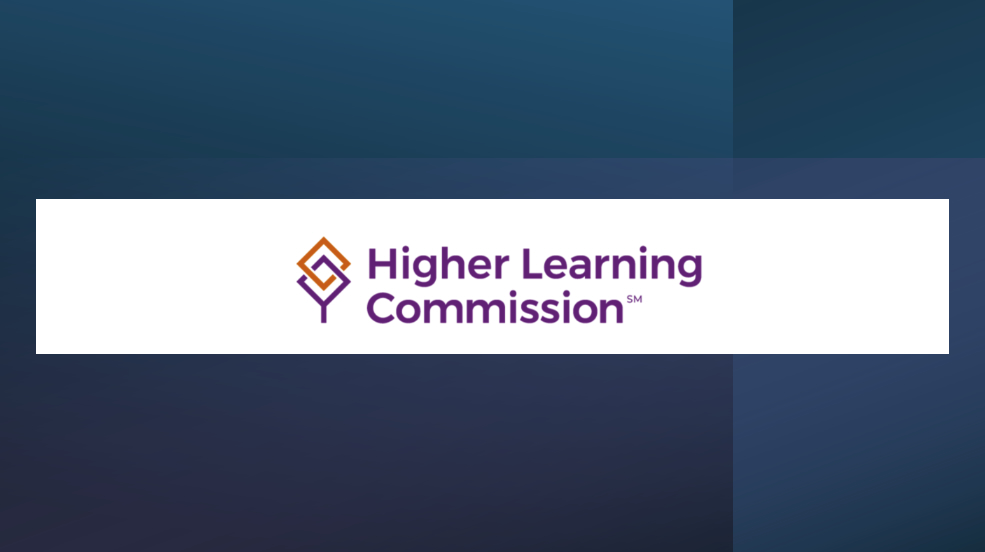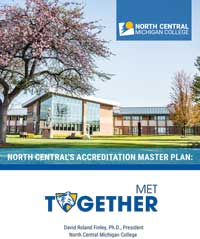Higher Learning Commission (HLC)
North Central Michigan College is accredited by the Higher Learning Commission (HLC). The accreditation process assesses the capacity of an institution to assure the quality of its educational programs, and is necessary for our students to access federal financial aid. Every ten years an accredited institution must have its accreditation reaffirmed. As part of this process NCMC underwent a comprehensive evaluation by a team of HLC peer reviewers during our ten year reaffirmation March 10 - 11, 2025.

TOGETHER articulates who we are and what drives us as Timberwolves. It's a call to action that separates NCMC from other colleges.
It is with great pride that the entire college team came together and achieved the best possible outcome from our HLC reaffirmation of accreditation -- NCMC "MET" all five criteria and 18 core components with no interim reporting required!
CLICK HERE TO REVIEW THE HLC REAFFIRMATION FINAL REPORT
All Timberwolves are supporting this very important initiative!
NCMC's Assurance Argument was due.
The HLC Peer Review Team conducted an on-campus site visit.

Criteria and Core Components
Each of the 5 Criteria have associated Core Components
See all 5 Criteria and their 18 Core Components
NCMC's Team
The 2025 Accreditation Team
See who's overseeing the creation of the Accreditation Arguments
HLC
Higher Learning Commission
What is the HLC and its Institutional Accreditation all about?
